Nylon (Polyamide)
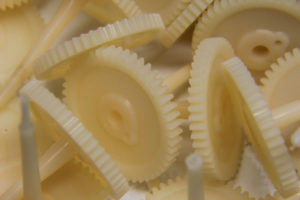 Rebling is a leader in nylon plastic injection molding. Rebling has plastic injection molded a variety of polyamides including Nylon 6, 66, 611, and 612 versions in both unfilled, glass, and mineral filled formulations, toughened and conductive grades, and high-temperature grades. Rebling has experience plastic injection molding polyamide material parts for applications ranging from aircraft components to components for the electric utility industry.
Rebling is a leader in nylon plastic injection molding. Rebling has plastic injection molded a variety of polyamides including Nylon 6, 66, 611, and 612 versions in both unfilled, glass, and mineral filled formulations, toughened and conductive grades, and high-temperature grades. Rebling has experience plastic injection molding polyamide material parts for applications ranging from aircraft components to components for the electric utility industry.
This highly versatile thermoplastic injection molding material is used in many applications due to a combination of outstanding mechanical and electrical properties, particularly toughness and wear resistance. Nylon plastic also has excellent chemical resistance and competitive pricing.
As polyamide nylon is a crystalline thermoplastic, material shrinkage is not uniform in all directions and is very dependent on part thickness. Critical close tolerance part dimensions need to be measured in a controlled environment and are affected significantly by moisture absorption. When a high moisture operating environment is anticipated, polyamide 612 should be considered because it absorbs approximately 25% of the amount of moisture that nylon 66 will absorb when tested at equivalent conditions.
Moisture can significantly degrade nylon plastic and cause premature or unexpected part failure if the material has not been properly dried prior to plastic injection molding. At Rebling, vacuum dryers are employed to remove moisture from the molding compound. In any case, the product designer should take into consideration the mechanical properties of polyamide in both the “dry as molded (DAM)” condition and the 50% Relative Humidity condition as these properties are highly sensitive to the moisture content of the nylon.
The natural color of polyamide plastic is a milky white which lends itself to easily be changed via the addition of color concentrates or selecting a precolored resin.
Properties of Polyamide (nylon) plastic:
Since nylon has excellent flexure and bending fatigue strength, it is an ideal thermoplastic for parts subjected to intermittent loading. The wear resistance of polyamide plastic is far superior to many metals and other thermoplastic injection molding materials. When combined with its low coefficient of friction, polyamide material makes an excellent choice for slides, bearings, and devices subjected to motion and wear.
Polyamide can be specified in designs requiring “Snap –Fits” due to its toughness and elongation. Press fits are also commonly used in nylon designs. The interference fit between parts molded from nylon can be much higher than the interference limits used for metal parts allowing for production economies.
The Heat Deflection Temperature @ 264 psi for polyamide 66 is in the range of 180°F. With the addition of glass fibers, this will increase to 230°F and increase rigidity as measured by the Flexural Modulus from 440,000 psi to over 1,000,000 psi.
A high temperature version available from DuPont known as the HTN series of nylons is also available in various grades and glass fiber loadings. The Heat Deflection Temperature of HTN 51G35HSL, a 35 percent glass filled polyamide, is 500°F at 264 psi. Rebling has experience with plastic injection molding several components using the HTN series of nylons for a variety of applications.
Secondary Operations for Polyamide (nylon) plastic parts
Polyamide nylon can be readily machined and Rebling is able to provide a full range of secondary machining operations, such as turning, drilling, tapping and grinding, as well as ultrasonic insertion, ultrasonic welding, pad printing, and assembly.


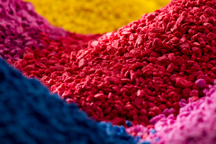 Thermoplastic
Thermoplastic ABS
ABS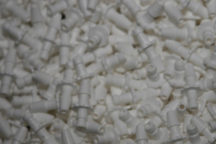 Acetal
Acetal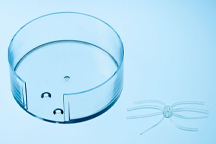 Acrylic
Acrylic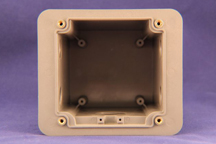 EMI
EMI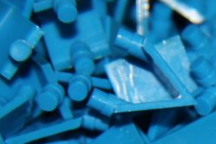 Noryl (PPO)
Noryl (PPO)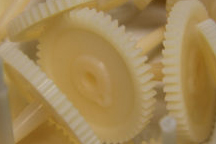 Nylon (Polyamide)
Nylon (Polyamide)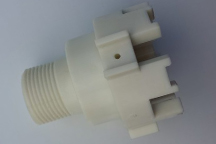 Polybutylene Terephtalate (PBT)
Polybutylene Terephtalate (PBT)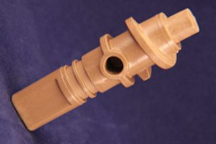 Polyether Ether Ketone (PEEK)
Polyether Ether Ketone (PEEK)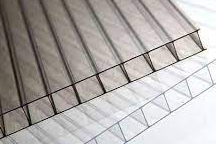 Polycarbonate (PC)
Polycarbonate (PC)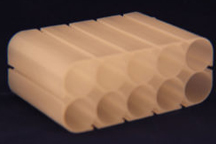 Polyethylene (PE)
Polyethylene (PE)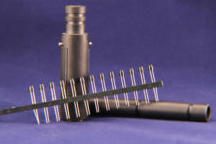 Polyphenylene
Polyphenylene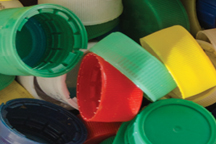 Polypropylene (PP)
Polypropylene (PP)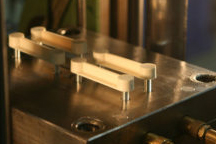 Polystyrene (PS)
Polystyrene (PS)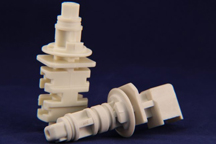 Polysulfone (PSU)
Polysulfone (PSU)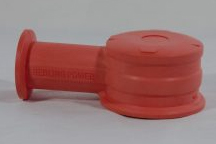 Thermoplastic Elastomers
Thermoplastic Elastomers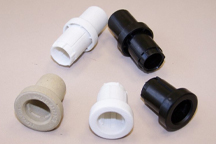 UHMW
UHMW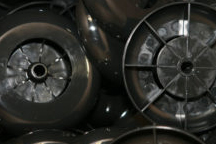 Polyetherimide (Ultem)
Polyetherimide (Ultem)